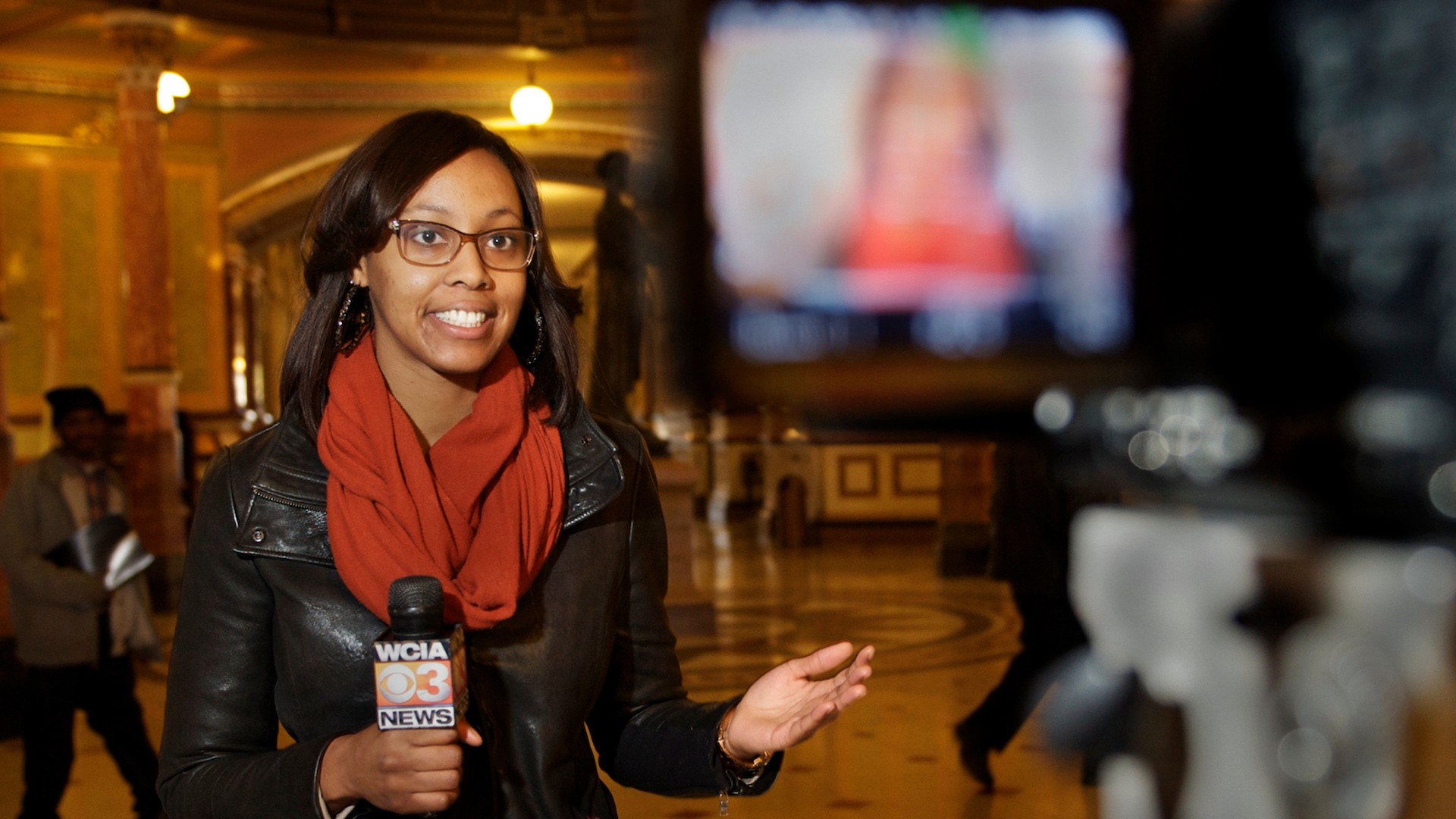More questions? PAR director (and 1998 PAR graduate) Jason Piscia can be reached at jason.piscia@uis.edu or (217) 206-7494. He’s also available to lead prospective students on tours of the UIS campus and the Illinois Statehouse.
What is PAR?
+
PAR is an affordable, 10-month master’s degree program that trains students to become journalists who produce intelligent news coverage about government and politics. A new class begins every August. The program’s centerpiece is a six-month paid internship covering the Illinois General Assembly’s spring session for a professional news organization.
How do I get into PAR?
+
- Bachelor’s degree
- Good academic record
- Solid writing skills
- Desire to report on government, politics and other public affairs topics
- Apply (see below)
Is previous journalism experience required?
+
It’s helpful but not required. Many PAR students are early career reporters and/or journalism majors who worked at a campus news outlet. But we also accept students who complete undergraduate degrees in other disciplines, including political science, creative writing and sociology and want to apply those skills to a career in journalism.
Do I need to take the Graduate Record Exam?
+
No.
What are the financial benefits of PAR?
+
PAR is the most time- and cost-efficient way to level up your journalism experience while also earning a master’s degree that will enhance your job prospects throughout your career. We offer these financial benefits for all PAR students:
- Tuition waivers during the spring and summer semesters
- Guaranteed scholarships
- A paid internship funded by the university, internship hosts and a generous grant from the Joyce Foundation.
What is the application process like?
+
First, fill out an online application. We’ll need writing samples, reference letters and college transcripts. Each applicant must complete a timed news writing test. If you demonstrate a strong desire to be a serious journalist and an ability to succeed in graduate school, you have a strong chance of being accepted to the program.
How many students do you accept in each class?
+
About 12.
What does a typical PAR year look like?
+
We begin in August. Each student takes four courses during the fall semester: Advanced Public Affairs Reporting (PAR 501), Developing Public Policy in Illinois (PAR 510) and two graduate-level electives. Many students choose electives from Communication, Political Science or Legal Studies.
In January, students begin their Statehouse news internships (PAR 504). They also take one required course (Legislative Issues – PAR 503) and one more elective during the spring semester. The internship continues into the summer semester (PAR 505).
Students can depart PAR as early as June 1 if they’ve secured a job. The program officially ends June 30.
How do the internships work?
+
PAR partners with professional media organizations to provide state government news reporting positions for students. Internship hosts include newspapers, wire services, television stations and radio outlets. In November, students and internship hosts meet for a series of job interviews. The PAR director then matches each student to an outlet. Students work as journalists under the supervision and mentorship of the outlet’s bureau chief, editors or news director. Students’ work will be read, seen and heard by audiences throughout Illinois.
Do I have to write a thesis?
+
No. Instead of a thesis, PAR’s capstone requirement for a master's degree is a portfolio featuring a student’s best work from their internship, demonstrating a mastery in public affairs journalism.
What is the job placement rate for a PAR graduate?
+
We average close to 100 percent for each graduating class. The results aren’t surprising, considering what graduates bring to the table. The reporting internships provide students with published or aired work products to show what they did in the demanding environment of the Statehouse.
Students leave PAR prepared to step into the most demanding beats a newsroom has to offer, and hiring managers know it. That’s why editors and news directors call us looking for alums who might be available to fill openings. In fact, the callers are often PAR grads themselves.
